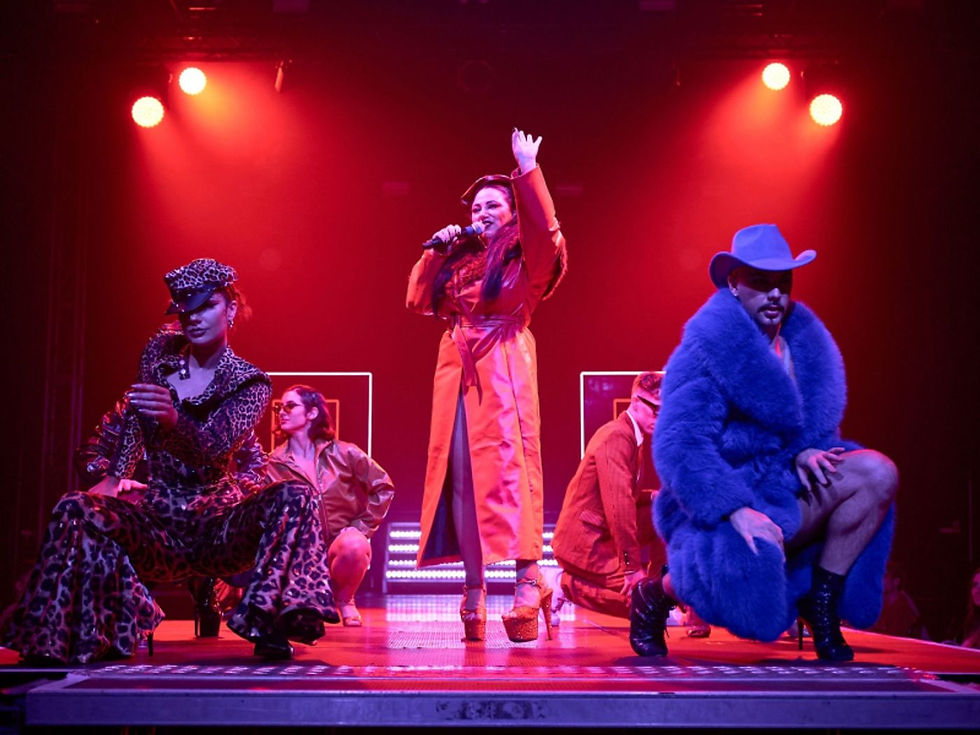Review: Water at the Studio Underground
- May 16, 2019
- 3 min read
By Tatum Stafford
When the lights went up at Tuesday night’s performance of ‘Water’ at Studio Underground, it was clear that not many of us knew what we were in for. The set, characters and dialogue were all comfortingly familiar, that is until mentions of a lack of birds, the ‘mainland’ and processing services came to light.
The program for the play sets Act I in ‘Australia, in a not too distant future’. This foreign time period is evident in some intriguing technological advancements, but doesn’t extend as far to change the language or behaviour of the play’s characters too drastically, making for quite a naturalised approach to the act’s heavy themes of asylum seekers, racial prejudice and water (or lack thereof).
In Act I, Peter (Igor Sas) is a once-powerful politician, who is celebrating his birthday with his wife Beth (Glenda Linscott) and his daughters Gemma (Amy Matthews) and Joey (Emily Rose Brennan). When Joey brings unwelcomed guest Yize (Richard Maganga) to dinner, a slew of Peter’s controversial immigration policies whilst in office are flung into the spotlight and make for a very uncomfortable encounter between him and Yize, who has sought asylum in Australia, and lost his sisters and mother in the process.
Act II opens with a stark contrast and some imaginative stage-work, as the cast and crew transform the modern Australian set into two sparse stages for a sequence on Ellis Island in 1921. Act I’s Beth becomes Elizabeth and Act I’s Peter becomes Robert as the once comfortable Australians are thrown into examinations awaiting their permission to enter the United States of America. Notably, Richard Maganga (who previously played Yize) is rough and tough as Robert’s clerk, questioning him meticulously about American history. The nurse (once Gemma in Act I) is incredibly demeaning in her handling and medical examination of Beth, which juxtaposes the treatment of Yize and his family remarkably well – and reminds the audience that we are all human, and would all struggle to go through such demanding and dehumanising processing.
The final scene of Act II introduces Andrew (Maganga), a cane field worker in Queensland, 1905 who converses with a friend, the daughter of a plantation owner, Josephine (Brennan). This is quite a confronting scenario for the audience, as we are reminded of some of Australia’s uglier facets of history wherein slave trade was extremely common. The racial segregation and separation of the two characters and their beliefs is extremely stark and makes for some heightened moments of conversation – perhaps most so whenever Josephine becomes aware of her privilege as the daughter of a successful white man.
This play spans three eras, and as such, invokes a meaningful discussion about how far we have come as a nation in terms of alienation, racial discrimination and the treatment of those seeking asylum. The political themes of the play are extremely well-timed with the election only days away, and the play’s rough handling of those who are deemed ‘other’ is certainly food for thought when it comes to party policy and ideals. This play is extremely well written and performed by this talented cast, and is a deeply moving theatrical experience that I believe, seeks to unite us as not only humans, but citizens of Australia.
Photo Credit: Daniel J Grant
All opinions and thoughts expressed within reviews on Theatre Travels are those of the writer and not of the company at large.






















